Community College Outreach Program
Community College Outreach Program - Research and Mentorship
Established by the Developmental Biology department, with participation from labs across Stanford Biosciences
Click here to visit us at our new website - ccop.stanford.edu!
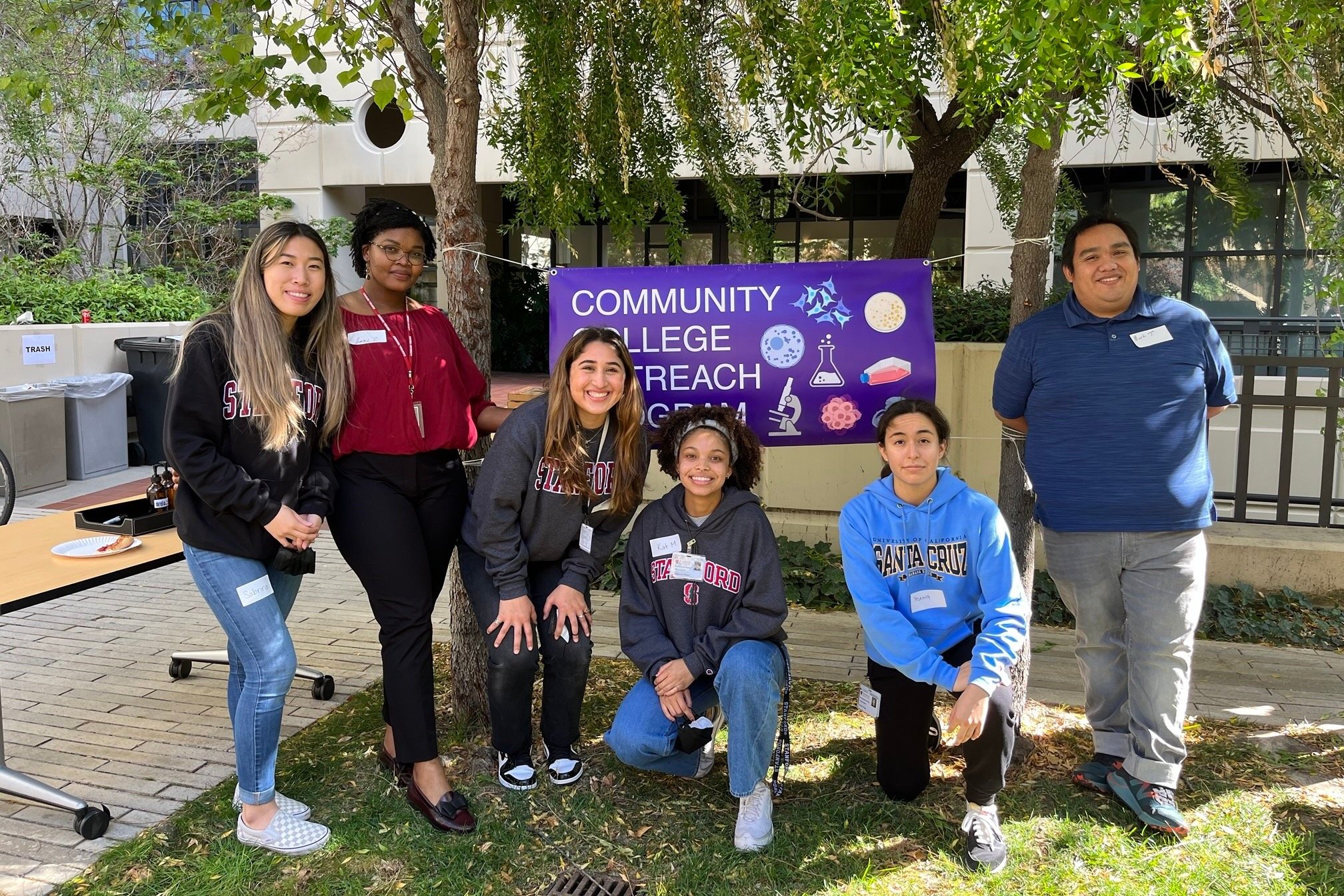
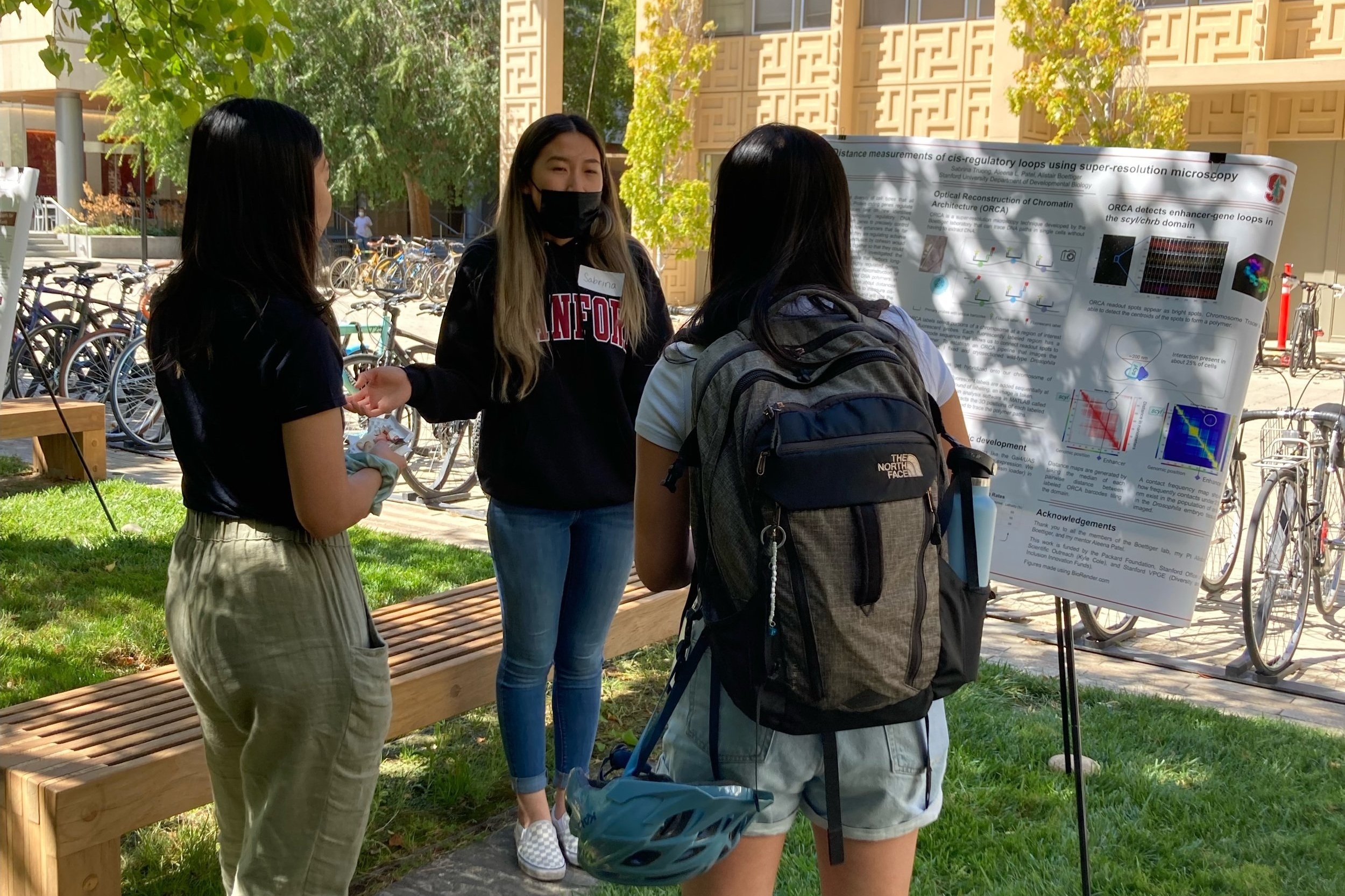
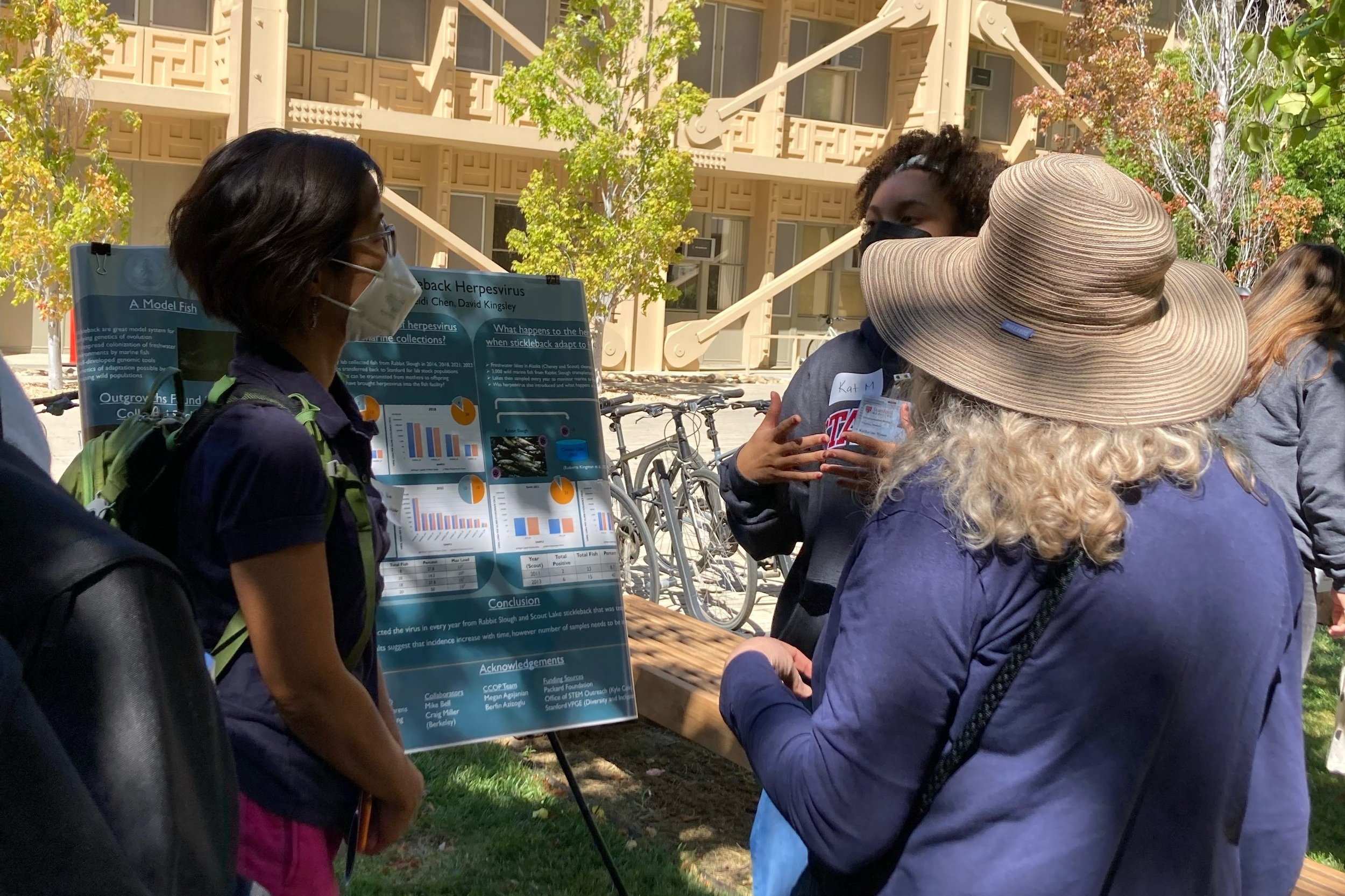
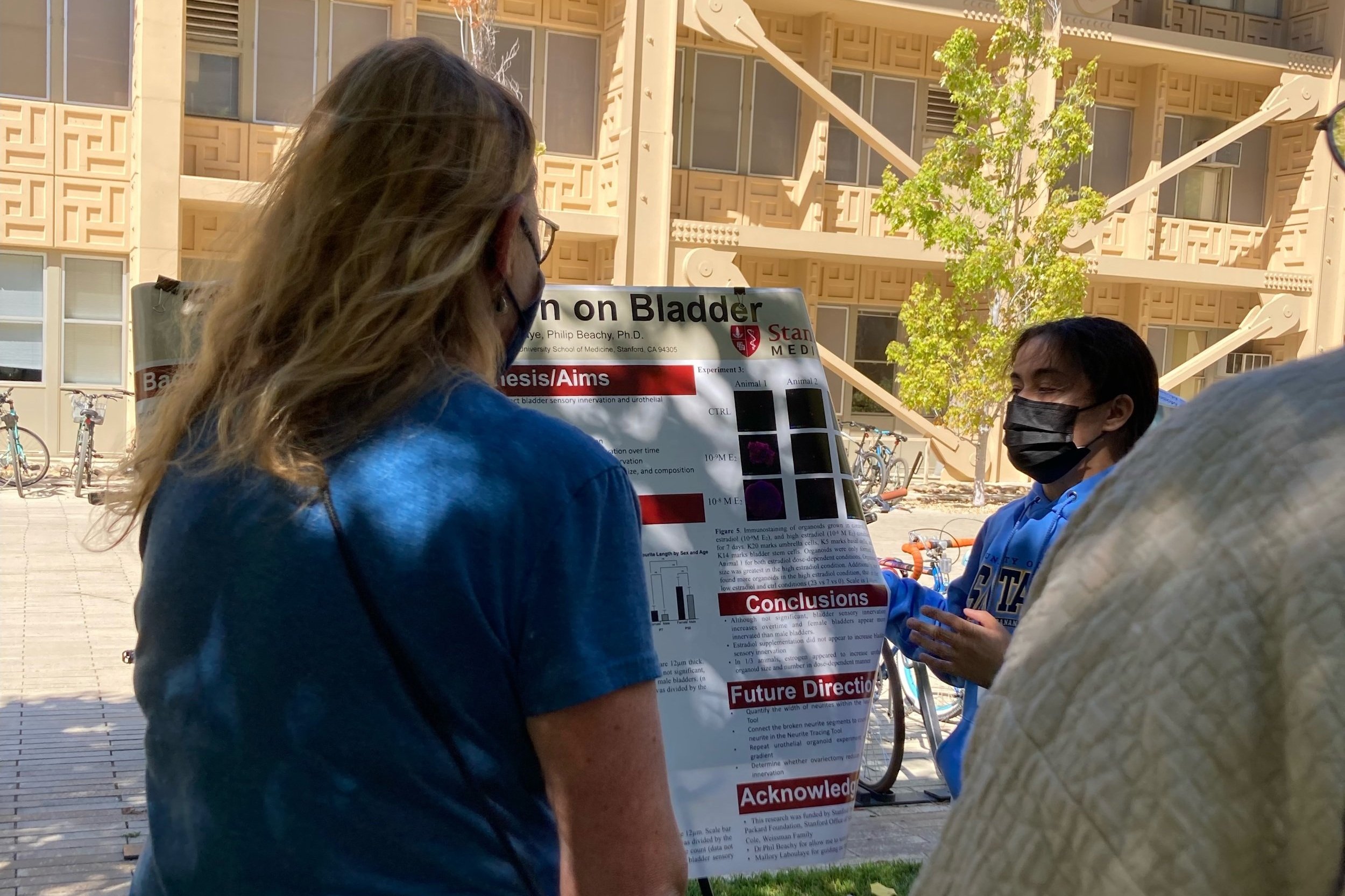
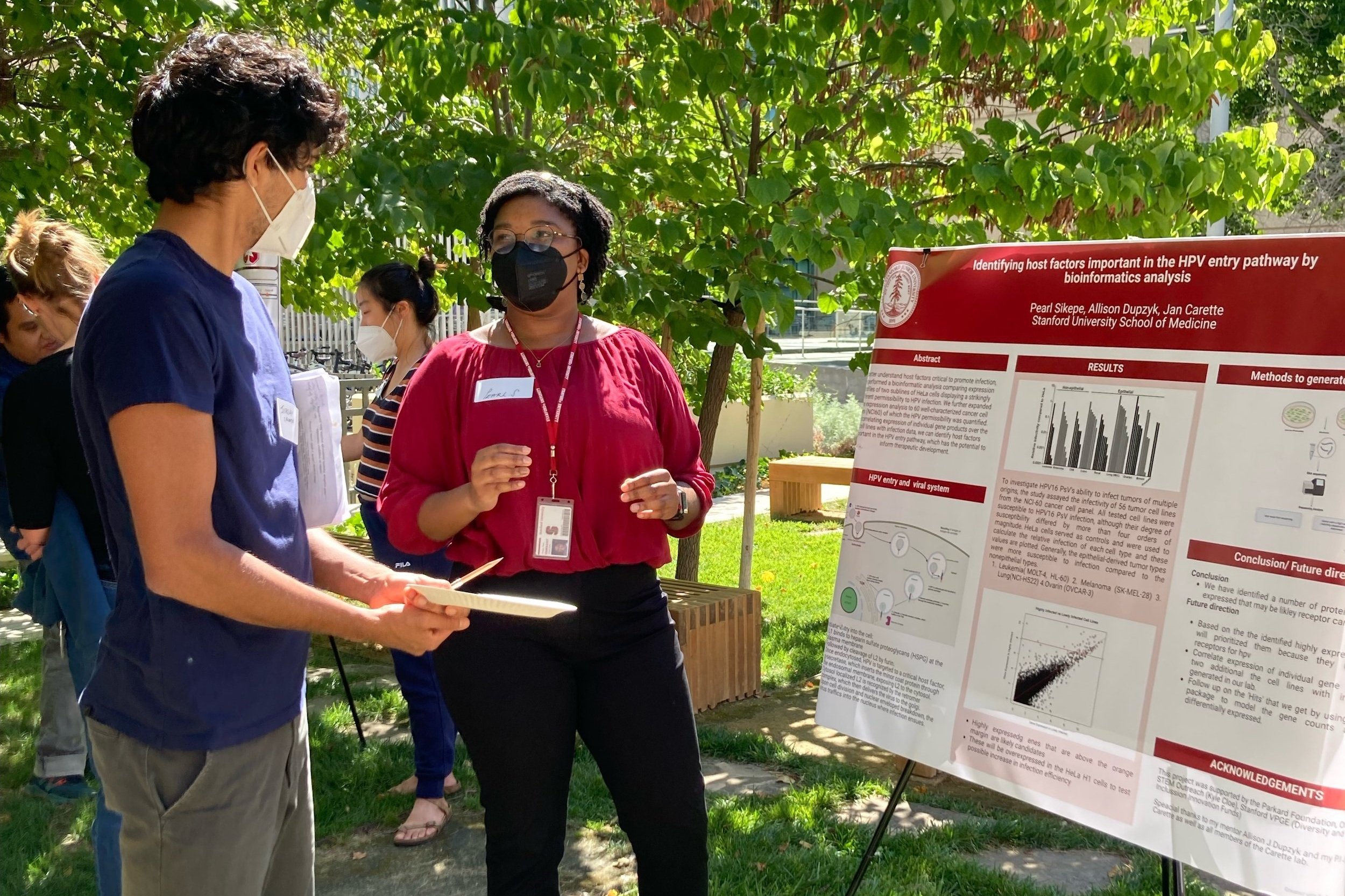
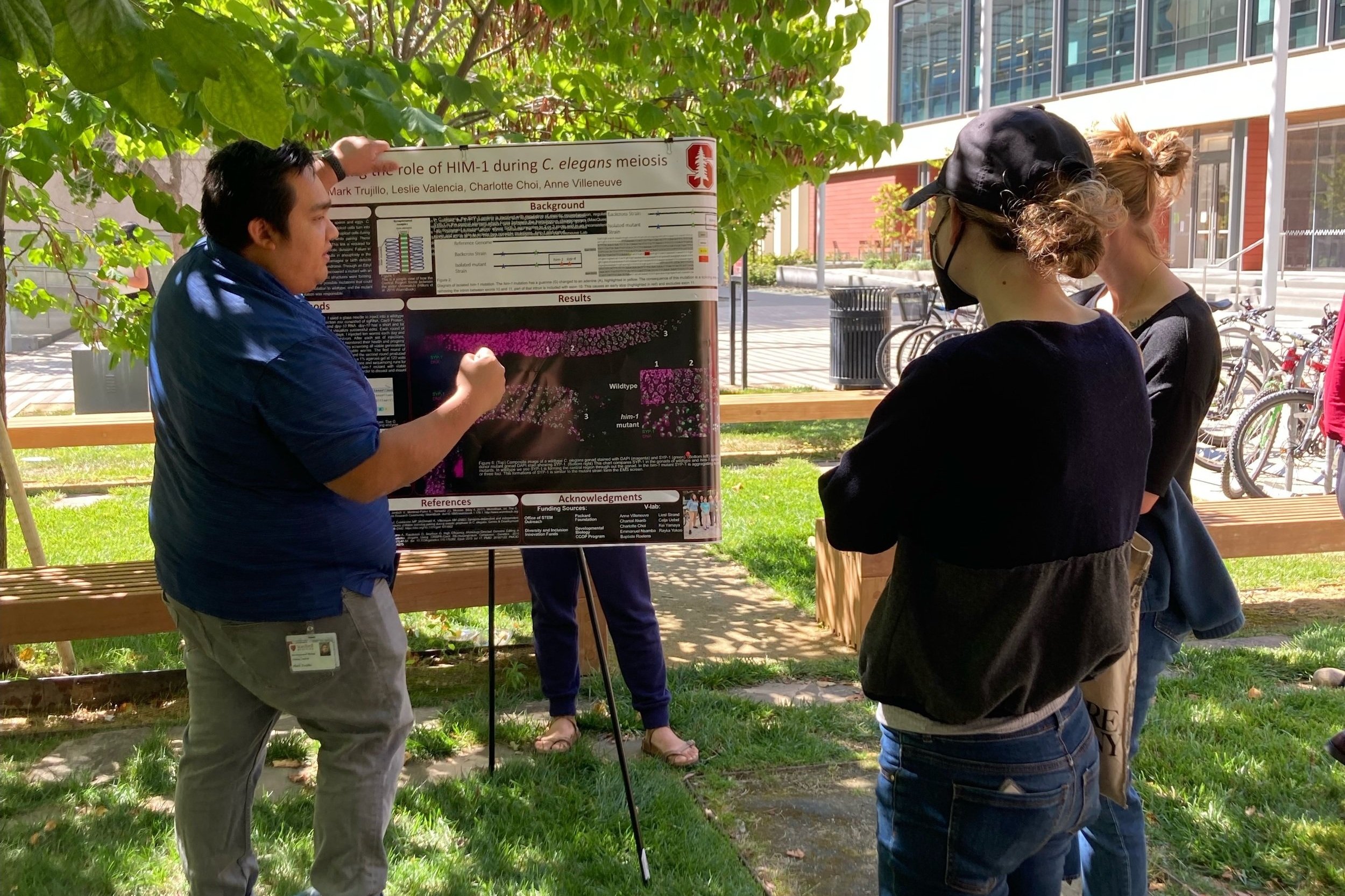
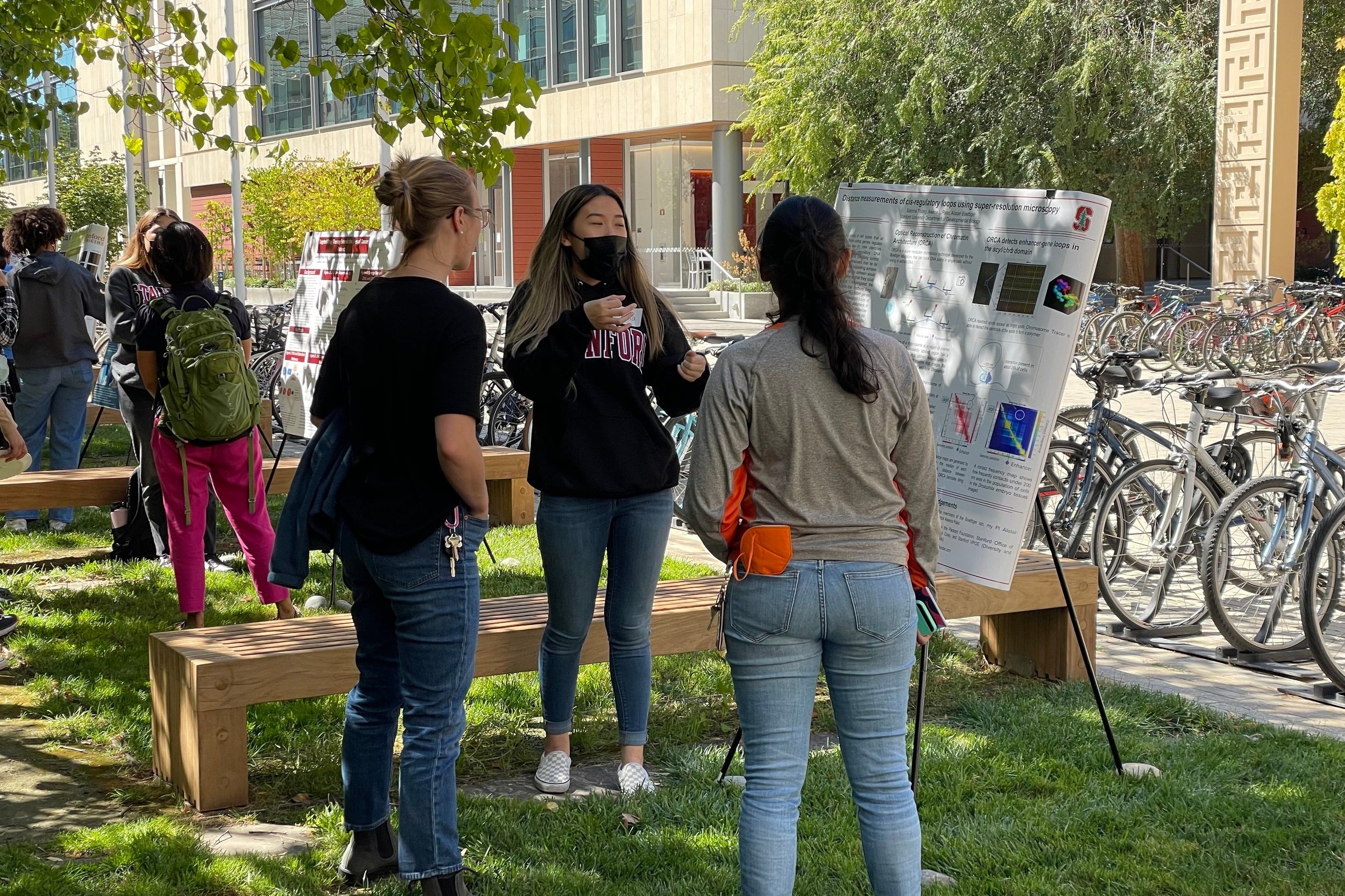
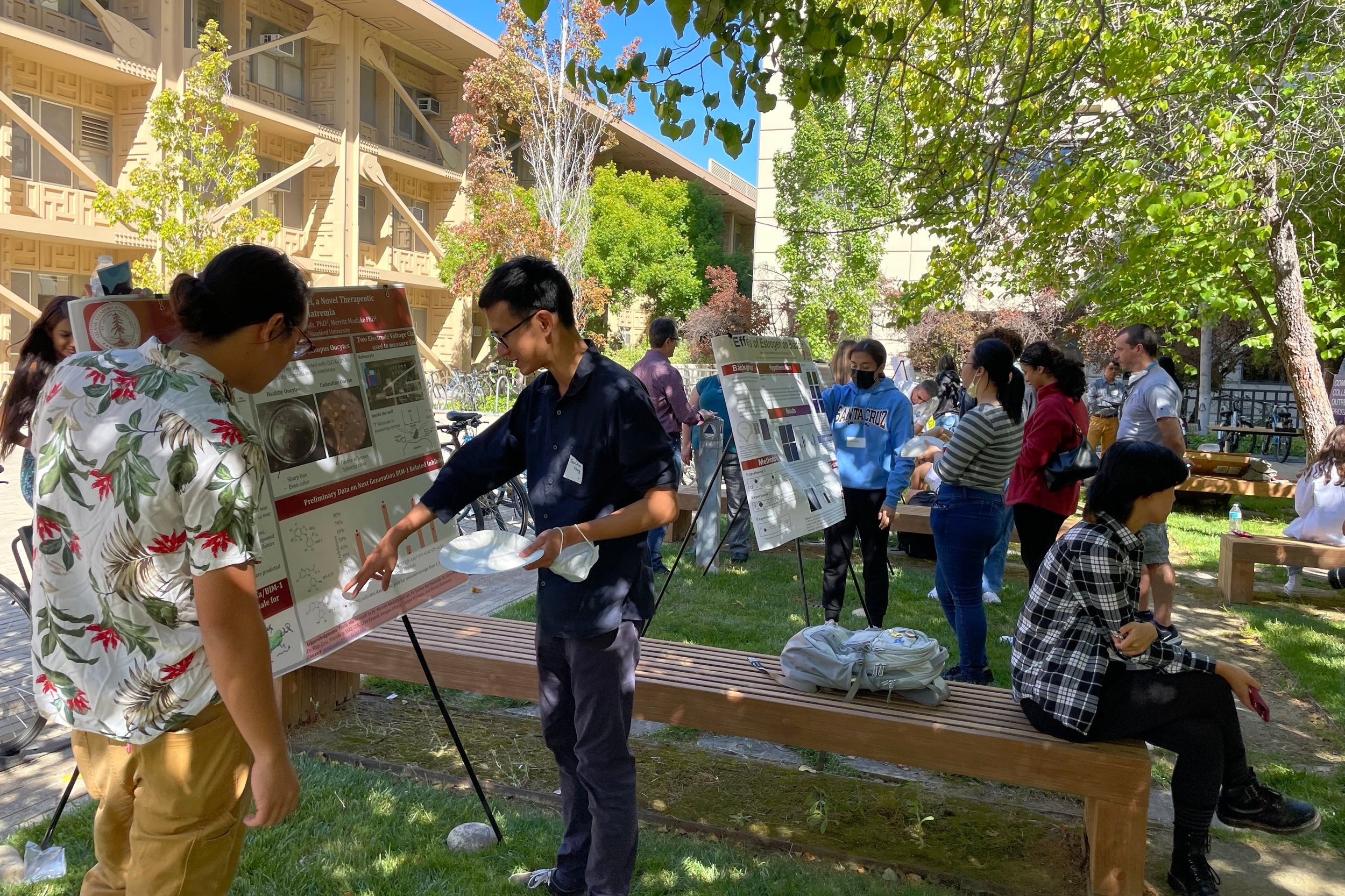
Mission Statement
CCOP aims to increase access to research opportunities and peer mentorship for Community College students from URM backgrounds and provide mentorship opportunities to Stanford trainees. The goal of CCOP is to provide Community College students valuable insight into working in a research environment/group, support and encourage students as they explore scientific fields for the first time, and support Diversity, Equity, and Inclusion for groups underrepresented in STEM fields within Stanford and in the broader scientific community. CCOP establishes connections between the local community and Stanford by promoting inclusivity within Stanford research groups, and allowing Stanford labs to more fully reflect the greater Bay Area community.
Program Overview
The Community College Outreach Program (CCOP) aims to advance diversity in STEM and reach out to the local communities by providing hands-on research opportunities and career mentoring to students at community colleges.
Community Colleges host students of varying demographic and socioeconomic backgrounds, including first-generation and low-income students, who remain underrepresented in STEM. A dearth of research exposure and financial barriers strongly discourage students from seeking unpaid research internships, which could kindle their interest in STEM careers. To help address these challenges, CCOP offers community college students a learning experience through two tracks. In the research track, we place students into Stanford Biosciences labs and pair them with experienced mentors for a paid ten-week research program. Our goal is to provide students with a direct and holistic exposure to laboratory life as well as an impetus to apply to graduate school. Integration into both a home lab and the broader scientific community at Stanford will be a stimulating experience for students, motivating them to start shaping their future STEM career goals.
In the mentorship track, students participate in a six-week long bootcamp with weekly workshops and allocated writing sessions. The bootcamp provides students with essential resources for college transfer, internship, and scholarship applications, and hands-on mentoring focused on crafting application documents.
For Stanford trainees, this program provides critical mentorship experience. Mentors take DEI mentorship training on Stanford platforms to learn how to foster an inclusive research environment in their current labs and in their future research groups.
Overall, CCOP significantly benefits Stanford and the greater community by establishing connections between them, promoting inclusivity within Stanford research groups, and allowing Stanford labs to more fully reflect the greater Bay Area community.
Funding Sources
Thank you to the Developmental Biology Department and Chair, Anne Villeneuve, for providing funding and administrative support to CCOP. We have now expanded to receive funding from the Institute for Stem Cell Biology and Regenerative Medicine, the Biology, Structural Biology, Radiation Oncology, and Microbiology & Immunology departments and the Neurosciences Graduate Program. Our full-time, paid summer research program is supported by a Packard Foundation grant, with Alistair Boettiger and Kyle Loh’s (DB Faculty, Packard Fellows) support as corresponding investigators. Additional funding and support have been provided by Kyle Cole and Stanford’s Office of Community Engagement, the Stanford School of Medicine Office of Graduate Education, and the Office of the Vice Provost for Graduate Education’s Diversity and Inclusion Innovation Funds.
Questions about CCOP? Contact the CCOP leadership team here or email us directly at ccopstanford@gmail.com!
Are you a current Stanford trainee interested in becoming a lab or bootcamp mentor? Let us know here!
